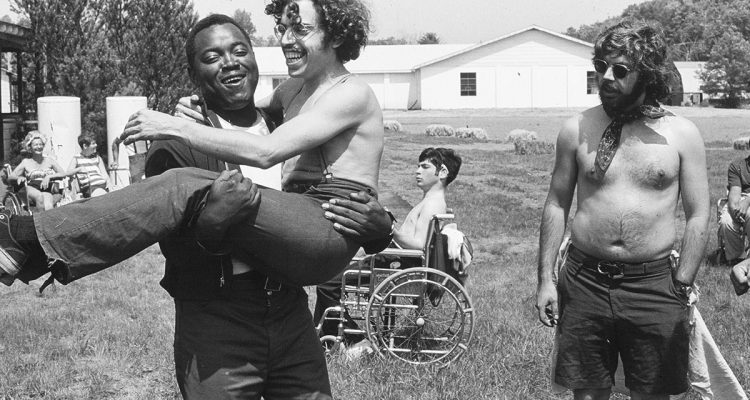“Making your mark on the world is hard,” said Barack Obama in a 2006 speech, long before he became President or even the executive producer of the Netflix documentary “Crip Camp.” He continued, “It takes patience, it takes commitment, and it comes with plenty of failure along the way. The real test is not whether you avoid this failure because you won’t. It’s whether you let it harden or shame you into inaction, or whether you learn from it; whether you choose to persevere.”
While the first documentary that he and wife Michelle lent their name to on the streaming giant, Oscar-winning “American Factory,” cast an uncertain but clear-eyed look into the future of America’s global ties, the executive producers’ second title captures something more akin to the 2008 magic. Nicole Newnham and Jim LeBrecht’s “Crip Camp” tells the extraordinary story of how a group of dedicated disability rights activists disrupted the status quo, moved public opinion, and paved the way for the passage of 1990’s landmark Americans with Disabilities Act. The film works as both a moving humanistic document and a great blueprint for organizers and other community leaders look to convert social action into policy outcomes.
For those already well-versed in other modern movements to secure rights for marginalized citizens, the playbook in “Crip Camp” will likely seem familiar. But it diverges in one key way by devoting a significant chunk of the runtime to recounting the titular summer getaway. The activist spirit, at least for the segment of the movement shown in the film, gets stoked not by collective trauma but rather through collective joy.
At Camp Jened, an upstate New York summer camp, teenagers with disabilities had the ability to partake in something most Americans take for granted— normalcy. In the late ‘60s and early ‘70s, a rainbow coalition of folks with disabilities descended upon the camp to partake in unencumbered adolescent fun. With the help of a group of counselors committed to doing whatever it took to ensure every camper had full access and participation in all recreation, the various disabilities became more than just accepted – they became celebrated. The teens also weren’t exempt from the trends of sexual liberation sweeping the nation; Woodstock, after all, was just around the corner from the grounds. The campers in “Crip Camp” recount getting in touch with their sensual sides for the first time while at Camp Jened, complete with all of the joy and awkwardness any other teenager exploring a complicated morass of sexual urges experiences.
If this sounds a bit like a camp yearbook brought to life in cinema, that’s not entirely incorrect. Newnham and LeBrecht—the latter being a camper during the period—really linger in the moments of shared joy. At first, it feels a bit like “Crip Camp” overstays its welcome. But it’s crucial that the euphoric effect of the environment come across because the campers did not leave Jened with the intention to radically agitate for social change. They left simply wishing the world outside the campgrounds resembled the one inside. A world where their parents and caregivers would react with protectiveness rather than fear. A world where people with widely differing abilities, backgrounds, and socialization could all find acceptance. And, to paraphrase another Obama quote, once you see the world as it should be, you rarely settle for the world as it is.
This basis of shared humanity and support is necessary to understand, as “Crip Camp” eventually switches to documenting the broader activism that campers participated in towards the end of the ‘70s. For the young people involved in the summer program, Camp Jened becomes a kind of Edenic ideal, whose image they seek to remake in the society that surrounds them. Considering it’s been two decades since the passage of the Americans with Disabilities Act, it’s hard to imagine a world where society looked at a person with a disability from birth as someone to institutionalize rather than accommodate. But the disability rights movement, like many other civil rights campaigns before it, had to correct a fundamental misconception about a group. Namely, activists had to dispel the notion that disability equals sickness. (After all, it can happen to anyone at any time.)
“Crip Camp” indulges a fair number of documentary clichés: the talking heads, the emotional reunion, and the inspirational montage, to name a few. But it’s hard to feel bothered with a film that tells an urgent, overlooked story so compassionately and clearly. Newnham and LeBrecht’s connecting of a society-altering movement to the diasporic alumni of a New York camp makes for a unique spin on the conventional activist narrative. If you’re looking for something to revive your belief in hope and change, look no further than “Crip Camp.” [B+]

